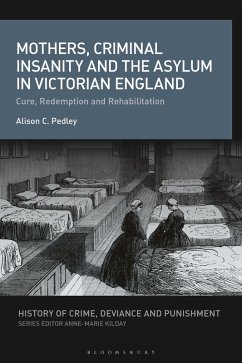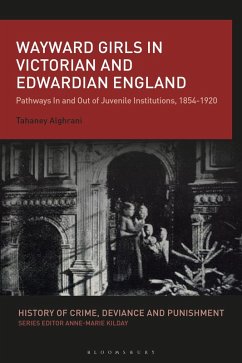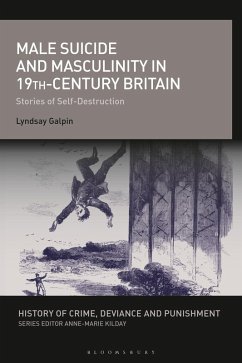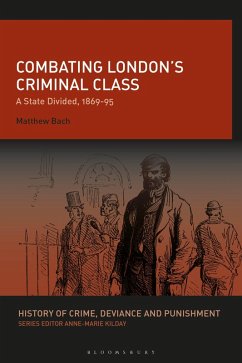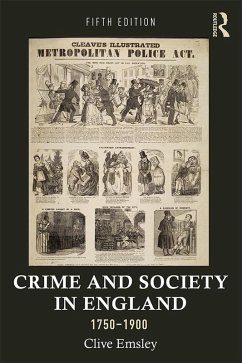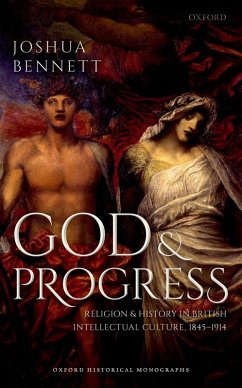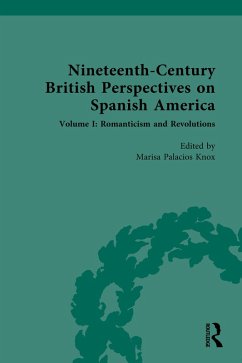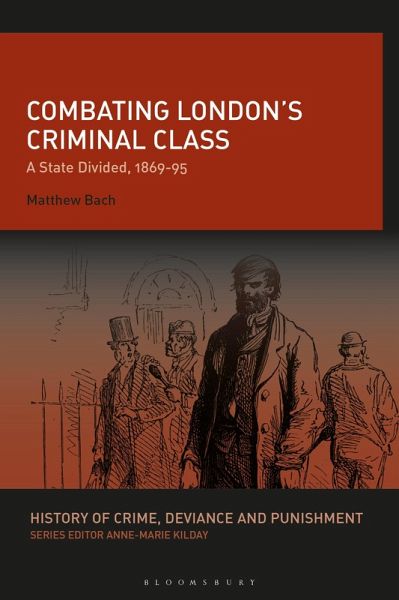
Combating London's Criminal Class (eBook, PDF)
A State Divided, 1869-95
Versandkostenfrei!
Sofort per Download lieferbar
25,95 €
inkl. MwSt.
Weitere Ausgaben:

PAYBACK Punkte
13 °P sammeln!
The criminal class was seen as a violent, immoral and dissolute sub-section of Victorian London's population. Making their living through crime and openly hostile to society, the lives of these criminals were characterised by drunkenness, theft and brutality. This book explores whether this criminal class did indeed truly exist, and the effectivenessof measures brought against it. Tracing the notion of the criminal class from as early as the 16th century, this book questions whether this sub-section of society did indeed exist. Bach discusses how unease of London's notorious rookeries, the fre...
The criminal class was seen as a violent, immoral and dissolute sub-section of Victorian London's population. Making their living through crime and openly hostile to society, the lives of these criminals were characterised by drunkenness, theft and brutality. This book explores whether this criminal class did indeed truly exist, and the effectivenessof measures brought against it.
Tracing the notion of the criminal class from as early as the 16th century, this book questions whether this sub-section of society did indeed exist. Bach discusses how unease of London's notorious rookeries, the frenzy of media attention and a [word deleted here] panic among the general public enforced and encouraged the fear of the 'criminal class' and perpetuated state efforts of social control. Using the Habitual Criminals Bills, this book explores how and why this legislation was introduced to deal with repeat offenders, and assesses how successful its repressive measures were. Demonstrating how the Metropolitan Police Force and London's Magistrates were not always willing tools of the British state, this book uses court records and private correspondence to reveal how inconsistent and unsuccessful many of these measures and punishments were, and calls into question the notion that the state gained control over recidivists in this period.
Tracing the notion of the criminal class from as early as the 16th century, this book questions whether this sub-section of society did indeed exist. Bach discusses how unease of London's notorious rookeries, the frenzy of media attention and a [word deleted here] panic among the general public enforced and encouraged the fear of the 'criminal class' and perpetuated state efforts of social control. Using the Habitual Criminals Bills, this book explores how and why this legislation was introduced to deal with repeat offenders, and assesses how successful its repressive measures were. Demonstrating how the Metropolitan Police Force and London's Magistrates were not always willing tools of the British state, this book uses court records and private correspondence to reveal how inconsistent and unsuccessful many of these measures and punishments were, and calls into question the notion that the state gained control over recidivists in this period.




